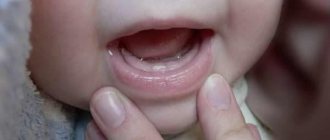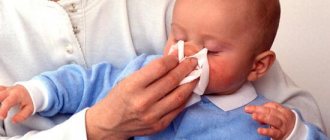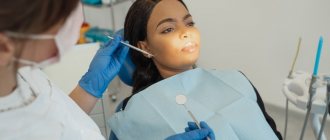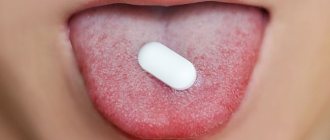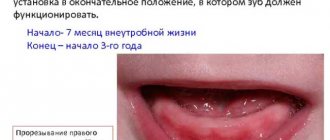The question of the need and dangers of vaccinations still remains relevant for most parents who care about the health of their baby. After all, vaccination accompanies a child from the first days of his life. It allows you to protect the child’s body from the penetration of dangerous infections, prevents the development of epidemic processes, and even in some cases helps to avoid death.
Immunization allows the baby's body to form long-term immunity against infectious diseases without transferring them. Naturally, in order for the immune system to respond correctly to the vaccine, the child must be absolutely healthy.
Teething is an important stage in the life of every baby. With their appearance, his bite and the entire dental system begin to form. It is no secret that the eruption of primary and then permanent teeth inevitably intersects with vaccination.
Therefore, many parents wonder whether it is possible to combine these two processes. So, what do experts think about vaccinations during the teething period? In particular, is it worth vaccinating a child with DTP when teething milk or permanent teeth?
When vaccine administration coincides with teething
First you need to look at the vaccination calendar and compare its data with the age when children begin to erupt milk or permanent teeth. This period will add trouble to parents, but it is during this period that a solid foundation is laid for the little person’s immune system.
It is important to remember that the appearance of teeth, although painful, is still a natural condition for the body, and therefore is not an indication for canceling vaccinations. In addition, most vaccines are easily tolerated by children. An exception may be the DTP vaccine (adsorbed pertussis-diphtheria-tetanus). It usually causes mild discomfort and a slight increase in temperature. However, these symptoms disappear after 1-2 days.
Video on the topic
Can vaccinations be given when a child is teething? Answers in the video:
Before DTP vaccination, it is forbidden to give your child foods with increased allergenic properties. The day before the procedure, it is advisable to take a general blood and urine test, which will help determine the presence of hidden inflammation. Such tests are prescribed mainly for sick children, as well as young patients with congenital pathology of internal organs.
If a child has pathological symptoms (regardless of whether they are associated with teething), the pediatrician must draw up an individual vaccination plan for the baby and gives preference to immune drugs with minimal risk of complications.
Vaccination and teething
Usually, the first baby teeth begin to appear in babies at 5-6 months. At this age, they are vaccinated against tetanus, whooping cough, diphtheria, pneumococcal and hemophilus influenzae infections, polio and hepatitis B. The next “vaccination” stage is at the age of 1 year (measles, rubella, mumps). At 15 months, booster vaccination against Streptococcus pneumoniae (pneumococcal infection) is required. And at the age of 1.5 years - from polio, diphtheria, whooping cough, tetanus, hemophilus influenzae infection.
Important! If some stage of vaccination was missed, for example, due to the child’s illness, then the vaccine can be given at any time from 6 to 20 months. The calendar contains routes for this purpose for those who have not previously been vaccinated. It is also important to follow the sequence of vaccine administration.
In addition, the calendar contains vaccinations that are given only when indicated: for example, for children at risk for hemophilus influenzae infection, hepatitis B or tuberculosis. Thus, for babies at risk for hepatitis B, the vaccine is administered three times in the first two months of life, as well as at the 12th month. Children at risk of hemophilus influenzae infection are vaccinated at the third, fifth and sixth month and revaccinated at the 18th month.
Measurement methods
The indicators on the thermometer demonstrate the ratio of heat production (heat production) of various human organs and tissues and the heat exchange between them and the external environment. Most of us are sure that in a healthy person, the readings on the thermometer should correspond to 36.6 °C, no more and no less. But actually it is not. Average readings can range from 35.5°C to 37.2°C, and this is considered normal.
To measure indicators, a thermometer is most often placed in the armpit, rectum, mouth or external auditory canal. In this case, before starting the measurement, the initial readings of the thermometer must necessarily be lower than the measured values. The highest rates were recorded at the end of the last century in a 52-year-old American who was exposed to the sun for a long time and suffered heatstroke. The thermometer readings were terrifying - 46.5 °C. However, the doctors provided assistance to the patient in time and he remained alive.
The lowest thermometer readings were found in the 90s of the last century in a two-year-old girl from Canada who spent many hours in the cold. When measured rectally, the thermometer readings in the little patient reached 14.2 degrees Celsius.
Not long ago, researchers from Stanford University in the USA published data that over the past decades, human body temperature has decreased significantly. Since Wunderlich's first studies, it has been declining at a rate of about 0.03 degrees per decade. According to one version of scientists, this was due to a decrease in metabolism, which in turn resulted from improved human health and increased life expectancy. Inflammations and various diseases that lead to an increase in readings on the thermometer are now observed much less frequently than one hundred, two hundred or more years ago, so fever in modern humans occurs less frequently.iv
However, fever still occurs periodically in both adults and children - for example, with such common diseases as influenza and ARVI. And then many people ask the question: “Does VIFERON bring down the temperature? And in what cases can it be used? We'll talk about this further.
It is worth noting that children should be given antipyretic drugs at temperatures above 38°C. In cases where the baby does not tolerate the heat well, worries and cries, or is bothered by seizures - antipyretics can be given at 37.5 °C, after consulting with a doctor.v
Vaccinations and the appearance of permanent teeth
The next stage of teeth change in children begins at 6-7 years old, and at the same time a new wave of vaccination starts. The child is again vaccinated against measles, rubella, mumps, as well as against tetanus and diphtheria. In addition, flu vaccinations become annual (they are optional).
During this period, children who were not vaccinated in the first year and a half of life and who have not had these diseases, that is, who do not have a formed immune response to pathogens, are also vaccinated.
Doctors do not forget those who should receive the vaccine according to indications. These are children at risk for tuberculosis. They are revaccinated in the sixth or seventh year of life.
When should a baby not be vaccinated against diphtheria, whooping cough and tetanus?
For some babies, the eruption of baby teeth is a kind of test for the body. In some cases, this process negatively affects the state of the immune system, which helps create a favorable environment for the penetration of viruses and bacteria.
During teething, some babies become restless, develop diarrhea, runny nose and even cough. In this case, DTP vaccination should be postponed for several days until the child’s health is completely stabilized.
It is impossible to vaccinate a baby with DTP if the process of teething is accompanied by pathological changes, namely:
- increased general body temperature;
- the appearance of severe pain and swelling in the gum area;
- development of diarrhea;
- the presence of a runny nose, cough and other manifestations of a viral disease;
- the presence of signs of pharyngitis or gingivitis in the oral cavity.
During this period, it is important to correctly assess the child’s health status.
To do this, before vaccination, you should undergo an examination by a pediatrician, who will give an opinion on the possibility or impossibility of vaccination within the specified time frame. This procedure is very important.
After all, only a doctor will be able to distinguish natural disturbances during eruption from pathological changes and make a decision on the need to temporarily exempt the baby from immunization, which will prevent the development of post-vaccination complications in the child.
Vaccinations and the appearance of wisdom teeth
“Eights,” as a rule, begin to erupt at the age of 16-18, but this process is not always as quick and painless as when the incisors or first molars appear. The fact is that wisdom teeth do not have milk predecessors, so they have to literally “fight” for a place in the dentition. Sometimes the “eights” shift and damage neighboring teeth, and if they turn out to be stronger, then the “sages” may begin to grow not vertically, but, for example, tilt to the side.
All these difficulties are characterized by protracted and wave-like eruption, which stretches from several months to several years, and painful sensations at the peak of the wave. By this age, a person has already completed the main vaccination schedule; only situational vaccination remains according to indications: against influenza, tick-borne encephalitis, rabies, viral hepatitis A, meningococcal infection and others.
When vaccinated according to indications (conscription into the army, living in regions disadvantaged by certain diseases, epidemic indications, etc.), it is also important to follow the rules of preparation for vaccination. If on the eve of the administration of the drug the wisdom tooth begins to erupt, then it is better to postpone the vaccination until the moment when the acute phase of eruption is over.
Treatment of redness and swelling at the injection site
Most vaccinations result in more or less severe redness or swelling at the injection site. The most severe local reaction to vaccination is observed in the case of DTP (redness, swelling and pain at the injection site) and BCG (formation of a long-lasting non-healing ulcer). For all types of vaccinations, it is recommended to avoid any local treatment for redness or swelling at the injection site. If the child scratches the injection site, it can be covered with a light gauze bandage. At the site of the DTP, a compaction often forms, located deep in the muscle - a “bump”. Often such a lump is painful, and the child easily limps on one leg (if the vaccine was injected into the thigh). The formation of a dense “bump” after DPT is considered a normal reaction and does not require any treatment. Within a few weeks, the lump will resolve on its own.
How to prepare for vaccination
How the child tolerates vaccination is important in preparing the body for this procedure. Pediatricians give advice on how to reduce the load on the immune system before and after vaccination:
- Only a healthy child should be vaccinated: if he has recently suffered from a cold or any other illness, then it is better to postpone vaccination for a couple of weeks. The fact is that a weakened immune system will give an incorrect reaction to the vaccine or not react to it at all, that is, the child will remain defenseless against the pathogen,
- the day before the procedure, reduce the size of your baby’s portions, give preference to light dishes: soups, purees, vegetables, fruits. A couple of hours before vaccination, it is better not to feed the child anything, just give him something to drink. When the body is not busy digesting food, it will respond more easily to the vaccine,
- when going to the clinic, dress your child according to the weather: you should not allow both hypothermia and overheating of the body,
- 3-4 days before visiting the treatment room, limit your baby’s social circle: avoid places with large crowds of people (transport, shops, events). Even in the clinic, it is necessary to avoid the child’s contact with other children so that he does not accidentally become infected. Some mothers ask grandmothers or older children to get in line, while they themselves wait with the baby on the street. This tactic allows you to reduce the development of negative reactions of the body to the vaccine.
Post-vaccination complications
The body's reaction to a vaccine is always difficult to predict. Doctors distinguish such concepts as post-vaccination reactions and complications.
The first ones occur after vaccination and go away on their own after some time. They do not pose a health threat. Post-vaccination complications are persistent changes that develop after the vaccine is administered. Violations lead to a significant deterioration in health, they are long-lasting and do not disappear without medical help.
When immediate medical attention is needed:
- a significant increase in temperature, accompanied by intoxication;
- prolonged continuous crying;
- convulsions;
- encephalopathy (the appearance of symptoms of a malfunction of the nervous system);
- Quincke's edema;
- anaphylactic shock;
- fainting;
- suffocation;
- croup;
- rash of allergic origin.
Vaccination is a difficult test for a baby’s body. However, you cannot refuse it. Only it will help reduce the likelihood of contracting extremely dangerous diseases that can lead to serious complications and even death. Before vaccination, parents should assess the condition of their baby and help him properly prepare for the procedure.
Prolonged teething
In general, teething is a normal physiological process for a small organism, but there are complications here too. Sometimes teething is delayed or becomes too painful: the baby’s gums become swollen, a high temperature rises (above 38 degrees Celsius), a runny nose, and signs of a cold appear. This condition can be considered a reason to postpone vaccination, but not refuse it!
“All of our incisors were cutting normally, but there was a problem with the molars: the gums were swollen, the temperature was rising, drool was flowing like a bucket. We were supposed to be given DPT, but the pediatrician said it was better to wait until the swelling went away and teeth showed. Then it will seem like it will be easier, and you can give DPT, because it itself is too heavy for children’s immunity.”
user Nastena, review from the babyblog.ru forum
At the same time, prolonged teething is a reason to consult a dentist. Perhaps at this stage the doctor will prescribe treatment that will reduce pain and allow the child to go through this period easier.
In addition, the cause of deterioration of the condition can be infectious (stomatitis) or fungal (candidiasis) lesions of the oral mucosa, so it is important to begin treatment as quickly as possible so that the disease does not develop into a more severe form and does not affect other organs and tissues.
How long can vaccinations be delayed if a child is teething?
As already mentioned, the process of teething during a normal course is not a reason for postponing vaccinations or completely refusing vaccinations.
The decision to vaccinate a teething child within the time frame regulated at the state level is made exclusively by the doctor. Naturally, the parents of a baby can write a refusal to be vaccinated, but this is not appropriate if their baby feels fine and has no problems with his general condition.
As a rule, if a small patient has pathological symptoms accompanying the process of teething, the pediatrician postpones DTP vaccination until they are completely eliminated. This can be a period of time ranging from several days to one or two months.
If the interval between the first DPT vaccinations is delayed by more than a month, then the pediatrician draws up an individual vaccination plan for the baby.
Indications for postponing vaccination
Since it is better to vaccinate a healthy body, parents should monitor the condition of their son or daughter in the days before vaccination. If a child develops at least one of the following signs, it is better to wait until he or she is completely healthy to get vaccinated. If there are several symptoms, then this is a reason to call a doctor and get tested.
Indications for postponing vaccination:
- apathy, excessive sleepiness, rapid fatigue of the child,
- disruption of the gastrointestinal tract: vomiting, diarrhea, constipation, flatulence, colic, etc.,
- signs of a cold: fever, runny nose, cough, redness of the pharyngeal mucosa,
- skin rashes,
- local infectious lesions: conjunctivitis, abscess, boil, etc.
- exacerbation of chronic diseases,
- severe fatigue: for example, during training or competitions.
Attention! It is important to distinguish between the concepts of “postponing vaccination” and “refusing vaccination”. In the first case, we are talking about postponing the date of vaccination due to temporary illness. In the second case, administration of the vaccine is not recommended for health reasons. These include an allergy to any component of the drug, diseases of an organ or system in an acute form, or the transition of an acute form to a chronic form, pathologies of the nervous or endocrine systems.

